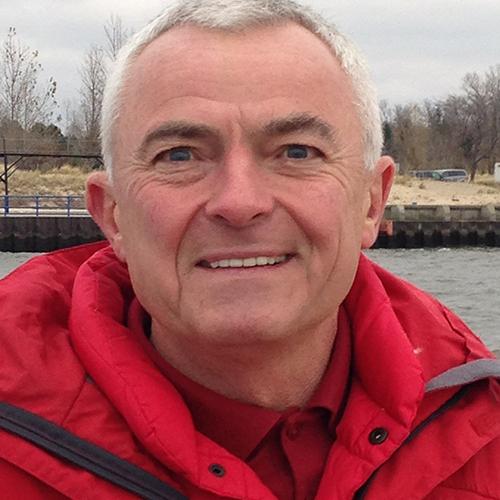
Reed, Scott
Position Type:
Faculty
Job Title:
Professor Emeritus
Department:
Forest Engineering, Resources & Management
Phone Number:
Email:
Bio
Professor Emeritus, Forest Engineering, Resources and Management;
Vice Provost Emeritus, College of Forestry, Outreach Engagement/Extension Service
Vice Provost Emeritus, College of Forestry, Outreach Engagement/Extension Service
Selected Publications:
- Reed, A.S. and V. Simon-Brown. 2005. Fundamentals of Knowledge Transfer. In: Forest Landscape Ecology: Transferring Knowledge to Practice. 2006. Springer. pp181-204.
- G. Philip Robertson, V. Allen, G. Boody, E. Boose, N. Creamer, L. Drinkwater, J. Gosz, L. Lynch, J. Havlin, L. Jackson, S. Pickett, L. Pitelka, A. Randall, S. Reed, T. Seastedt, R. Waide, and D. Wall. 2008. Long-Term Agricultural Research (LTAR): A Research, Education and Extension Imperative. BioScience. In Press. 16pp.
- Ries, Paul D, A. S. Reed and S. Kresse. 2007. The Impact of Statewide Urban Forestry programs: A Survey of Cities in Oregon, U.S. Arboriculture & Urban Forestry. 33(3):168-175.
- Reed, A.S. and V. Simon-Brown. 2005. Fundamentals of Knowledge Transfer. In: International Association of Landscape Ecologists, Technology Transfer. Ontario Forest Research Institute, Ministry of Natural Resources. Sault Ste. Marie, ON P6A 2E5. 31 pp.
- Reed, A. Scott. 2004. Strategic Relationships: Engaging for Cooperation, Collaboration and Partnerships. International Union of Forest Research Organizations, Extension Working Party Symposium. September, 2004, Orvieto, Italy, 7 pp.
- Rickenback, Mark G., J. Bliss and S. Reed. 2004. Collaboratives, Cooperation, and Private Forest Ownership Patterns: Implications for Voluntary Protection of Biological Diversity. Small-scale Forest Economics, Management and Policy. Vol. 3, No. 1: 69-84.
- Withrow-Robinson, B., S. Broussard, V. Simon-Brown, M. Engle and A.S. Reed. 2002. Seeing the Forest: Art About Forests and Forestry. Journal of Forestry. 100 (8): 8-14.
- Rickenbach, Mark G. and A. Scott Reed. 2002. Cross-Boundary Cooperation in a Watershed Context: The Sentiments of Private Forest Landowners. Environmental Management. 30:584-594.
- Reed, A. Scott. 2001. Extension in Oregon: Educational Leadership for Sustainability. Journal of Forestry. 99 (3): 18-21.
- Reed, A. Scott. 1999. Key Factors in the Success of Extension Forestry Programs. Swiss Federal Institute for Forest, Snow and Landscape Research. January, 1999. Zurich, Switzerland. 5 pp.
- Reed, A. Scott. 1998. Targeting Extension Programs to Non-industrial Private Woodland Owners. International Union of Forestry Research Organizations Extension Working Party, S6.06-03 Symposium, July, 1998, Blacksburg, VA. 6 pp.
- Reed, A. Scott and Richard A. Recker. 1997. Understanding Certification Through Sustainable Forestry Partnerships. Forest Products Society Annual Meeting, March, 1997. Vancouver, British Columbia, Canada. 7 pp.
- Reed, A.S., J.J. Garland, and L.E. Biles. 1997. Extension Forestry Organizational Processes, Programs, and Policies. In: Proceedings, Approaches to Extension in Forestry--Experiences and Future Developments. International Union of Forestry Research Organizations Working Party, S6.06-03. September 1996, Freising, Germany, 117-136.
- Reed, A.S. and R.E. Duddles. 1994. Ecosystem Management: Oregon's Coquille River. Western States Natural Resources Policy Workshop. Reno, NV. April 11-13, 1994. 4 p.
- Hobbs, S.D., A.S. Reed, and B.D. Hobbs. 1993. Technology transfer: putting research into practice. Journal of Forestry 91(10): 12-14.